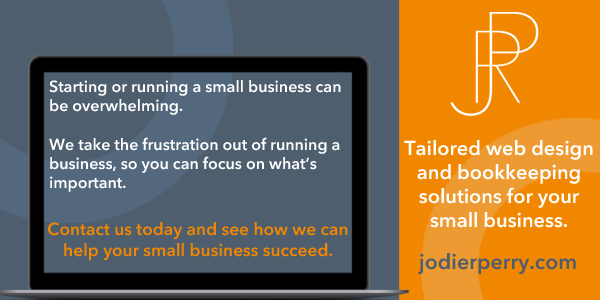You decided to start your own virtual assistant business. The freedom to break free from the 9–5, be your own boss, raise your kids, and enjoy your life. You want to define success on your own terms. You did your research and know that you need to create a website, so you can tell the world about your great idea. But before you take your first client, you need to have a freelancer contract ready for your first client to sign.
Some of the links in this post are affiliate links. If you purchase using one of these links, I make a small commission at no additional cost to you. This helps me keeps things free for you, and who doesn’t love free stuff. For more information, see my disclosures.
A Freelancer Contract is Not a Magic Wand
If you hear the word contract, your mind may automatically jump to a court of law. That the purpose of a contract is to just protect you from a lawsuit. This is actually the last function of a contract. It is the no other option left.
Before we continue, I just need to say this. I am not a lawyer and this post is not intended for legal advice. This is just meant to be for educational purposes. There are some great online resources that provide legal services. Check out Rocket Lawyer or LegalZoom.
What is the purpose of a contract then, if it is not just for a lawsuit? The thing to keep in mind, is that a contract is only as good as the person it represents. That is why if you want to be a sought after virtual assistant, you need to be a person of integrity. Then it is your word, reputation, and character that will back up your freelancer contract.
On the flip-side, you also want to make sure you enter an agreement with the same type of people. If you enter a contract with a person who lacks integrity, don’t expect the contract to magically change the person. A contract will not turn a crook into an honest person.
What a Freelancer Contract Does
A freelance agreement functions to establish the relationship between two parties. For example, will your relationship be an employee/employer or client/independent contractor.
It clarifies expectations and communications. For example, when do you want to be paid or what times you will answer calls or texts. Also, when your client can expect results.
A freelance contract is a point of reference that you can refer to throughout your project, so you can remember what was agreed to and the scope of the project. For example, if you have a different rate for rush projects. You can refer your client back to the terms she agreed to, so she can decide if she wants the rush deadline.
Work with the Right People
I know when you are first starting out, the pressure to get clients and make money can be overwhelming. But don’t jump at the first client that comes calling, without vetting them. (If someone tells you they are difficult to work with, believe them and move on. The stress of working with a difficult client is not worth the money. Or charge double. That works too.)
For the most part, all my client experiences have been good. There was only one client that I had to refer back to the terms in the contract. As a matter of fact, I reworked some of the terms based on the experience with this client. Then I finished the project and declined to work any further. A contract is only as good as the character of the people entering it. Make sure you are a person of integrity and your clients are as well.
What to Include in a Freelancer Contract
There are a few essentials to include in your freelancer contract. This will depend on your business and the services you are offering. The list is not exhaustive, again, the intention is just to give you an idea of what should be included. You can download the sample agreement or sign-up to get templates that you can make your own. (This is only intended to give you an idea of what a contract should look like. I am not a lawyer, therefore, I am not offering legal advice.)
1. Date of service
When the project starts and if there is a set end date. If you are taking on a client that you don’t know, I suggest starting with a project that will end in 90 days or so. Then you both can decide if you want to continue the relationship.
2. Names
Include your name or your business name (needs to be a legal entity, so if you don’t have an LLC then your name is the legal name). The name of your client or business name. And how you will be referred to throughout the contract, such as contractor/client.
3. Addresses of both parties
You will need this if you send an invoice to a collection agency or end up in court (hopefully, that will never happen). If you want to send a thank you note or gift, you will also need the client’s address. This is a good time to get that information.
4. Services provided
This is the time that you define your services and what you will be doing. Be as detailed and clear as possible. You don’t want the client to go beyond the scope of what was discussed without being compensated for it. This doesn’t mean that you can’t take on new tasks, this is just establishing what you agreed to at the start. I am constantly taking on new tasks and my job descriptions are changing. But if you don’t want to take on something, you can point to the contract and mention that it is beyond the scope.
5. Standard procedures
This should list availability, expectation for delivery, rush deadlines and the fees associated with being rushed. Yes, you need to charge a rush fee. As a rule of thumb, a rush fee should be double your standard fee.
Be specific about when you will respond to calls or text messages. When delivery can be expected. Some of my clients are project oriented, so the one question I always ask is, “When do you need it by?” If I can’t deliver by the time then at least they know.
6. Payment
This should detail what you are charging per hour or the flat rate fee you are charging for the project. You should also include the cost of any additional services beyond what is listed in the description of services. Detail the client’s is responsibility for any expenses you incur while working on their project.
Finally, when do you want to be paid. Is it 10 days after sending the invoice or 30 days? How can the client pay you: check, venmo, paypal, zelle, or another method.
This is one of the expectations that you want to be very clear about. You need to feed your family too, so be very clear on when you expect to be paid.
7. Ownership of the final product
If you are offering creative services this is definitely a must-have. But you should also clearly define ownership for any service provided. It is important to be very clear as to whom owns the works in progress, the final product, and if you have the right to use your creation for promotional use. This will all depend on the services you provide, but think about it ahead of time.
8. Termination
All projects will reach a conclusion and clients can be difficult. You want it easy to terminate an agreement for you and the client. It is important to be clear in this section that the client is still responsible to pay you for your work. If it is project fees then this will be based on the percentage of completion. If you charge hourly, then they are still responsible for the hours that you worked.
In my contract, I mention that completed work and works in progress will be held until the final invoice is paid.
9. Relationship of parties
This is one of the legalese places that you want to make sure you are clear. The important term is that you are an independent contractor not an employee. Therefore, you set your schedule (woohoo). The client can’t define how you work or tell you when to do it. This is my favorite part of the agreement.
10. Confidentiality
This business is based on mutual trust. There is an expectation for confidentiality, and honestly, you should keep your mouth shut. For your client and for you, include a mutual confidentiality clause.
11. Miscellaneous
This includes a non-disparagement clause, right to use the work for marketing purposes, indemnity, and a few other things. You can download a sample agreement to see everything else that is included.
12. Signature lines
You both need to agree to the contract, so have a place for name, date, and signature.
Conclusion: Freelancer Contract
Mom, it exciting to create your own business. The list above is not extensive, it is just a place to get you started. Establishing how you work, when you work, and how you want to interact with clients is something to have in place before your first client. Get started creating your freelancer agreement for your business by downloading the free resources today.
And just to mention again, I am not a lawyer, therefore, I am not offering legal advice. I am just a friend wanting to give you an idea of things to include and look for in a contract.
















0 Comments